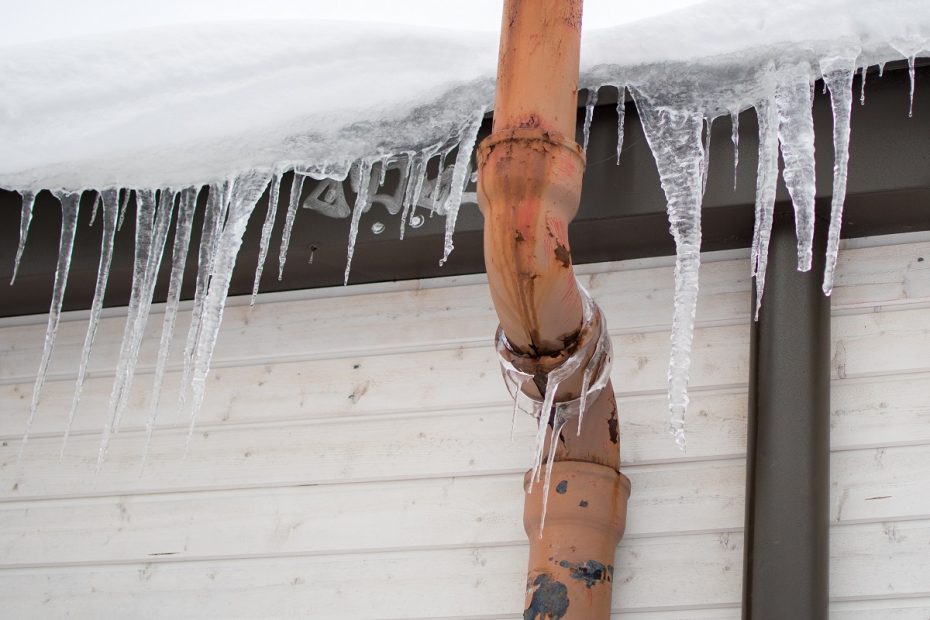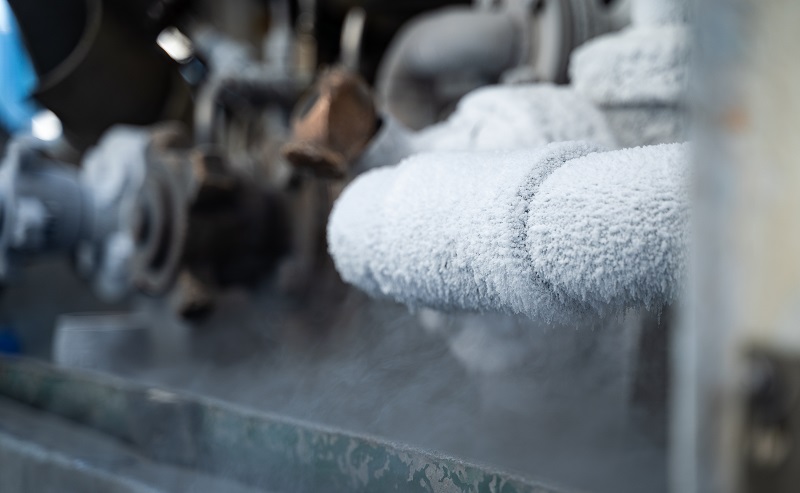When the temperature is cold, one of the major concerns for many property owners is frozen pipes. Once a pipe freezes, there is a high risk that the pipe will burst. If a pipe bursts, it will cause severe water damage to the property, making it a huge headache to deal with.
It is important for property owners to understand why frozen pipes are bad and what one can do to prevent pipes from freezing.
5 Signs of Frozen Pipes
Below are signs of frozen pipes, of course, if the temperature is above freezing point (32 degrees Fahrenheit or zero degrees Celsius), water will not freeze.
Limit or No Running Water
This is an obvious sign when you turn on the faucet. If the water dribbles out or does not run at all, your pipes are probably frozen. Without running water, it is impossible to perform many daily tasks such as taking a shower or even flushing the toilet.
Smelly Water or Faucet
If the pipes are frozen, there could be buildup from food or other waste in the pipes. The odor in the sewer lines would have nowhere to go except back into the property. When you notice a bad odor from the faucets or drains, it could mean the pipes are frozen.
 Visible Frost or Condensation
Visible Frost or Condensation
This is another common sign for pipes exposed in the open, like pipes under the sink or outside the property. You will sometimes notice a layer of frost or condensation in the spots that are frozen.
It is easier to take action to unfreeze the pipes if you know where the pipes are frozen.
Uncommon Sounds
When the ice in the pipes starts to move, it can make gurgling, banging, or clanging noises.
Cracked Pipe
This is a strong visual cue for frozen pipes. When the pressure inside the pipe builds up due to the ice, pipes will crack. Pipes will weaken when freezing happens frequently. This is when serious water damage can occur.
What Happens If Pipes Burst?
Pipes will be at risk of freezing when the temperature outside stays below freezing point for an extended period of time. This is especially true for pipes that are not insulated or in a cold area.
In worst case scenarios, the pipes can burst. When water freezes inside the pipe, it can expand and create immense pressure. The ice expansion itself will not cause the pipes to burst, but the pressure can result in a burst.
Once a pipe bursts, it can cause serious water damage.
If the water supply is not shut off, water will flood into the property, causing some serious damage. The damage can be as small as water stains on the wall, but it can also be something major like structural damage to the property.
When there is enough moisture on the property, mold can start to form and eat away at organic building materials like wood and drywall. For individuals with allergies and other health concerns, it can be a serious problem.
Frozen Pipe Prevention Tips
The best way to avoid extensive water damage to the property is to prevent frozen pipes. Make sure you read these tips to lower the chances of frozen pipes happening at your property.
Keep the Pipes Insulated
Check if all the pipes on your property are insulated. Pay more attention to areas like the crawlspace or attic because usually the pipes in those areas are unheated. When the pipes are insulated, they are far less likely to freeze. Even if the temperature doesn’t drop low in your area, this is still a good practice. Also, when the pipes are properly insulated, they can lower your bills as well.
Keep Your Property Warm
During the winter or days with extreme cold weather, make sure your home stays above a certain temperature, this will help keep the pipes warm.
Let Water Run from the Faucet
Having running water in the pipes can sometimes be all that’s needed to prevent freezing. If there is an external pipe that’s hard to keep warm, turn on the faucet and let it drip when the temperature is below freezing.
Shut Off the Water Supply
For external faucets and pipes, make sure the water supply is turned off before cold weather hits. Remember to drain water from garden hose and other outside sources.
Open Cabinet Doors
If the pipes under the cabinets are uninsulated, keeping the cabinet doors open can allow the heat to warm up the pipes.
Frozen Pipe Water Restoration Professionals
A frozen pipe burst means major flooding in your basement, bathroom, kitchen, or other areas of your home. You don’t want to wait to act if there are signs of frozen pipes on your property. It’s critical to get professional water extraction services on the scene to avoid long term effects of water damage.
ServiceMaster by Replacements provides water extraction and flood cleanup services in Union, NJ, Cranford, NJ, Long Branch, NJ, and their surrounding areas. Our water restoration crews are available 24/7 to respond to frozen pipe burst emergencies.
Call us at (732) 842-6917 for a fast response to your water damage emergency.

 Visible Frost or Condensation
Visible Frost or Condensation





